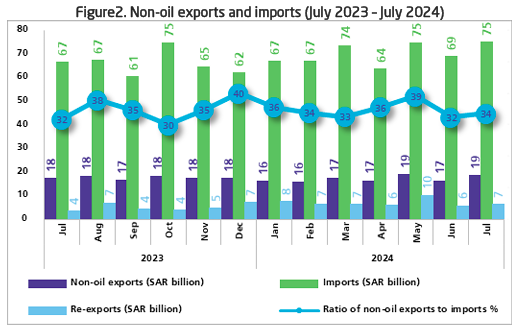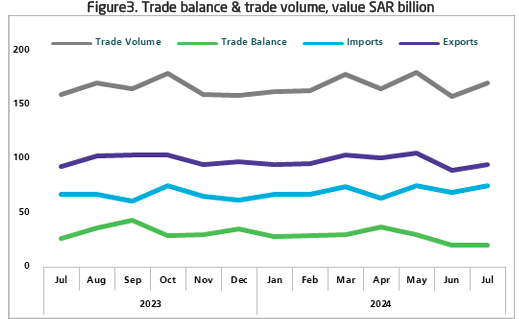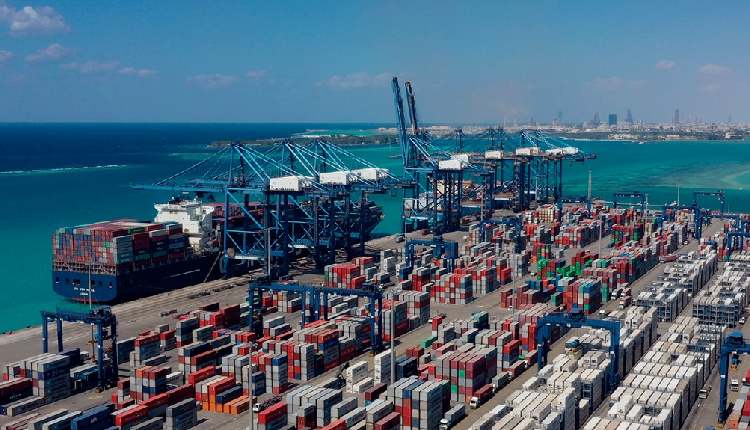Saudi Arabia’s non-oil exports, including re-exports, rose by 19.0 per cent in July 2024 compared to the same month in 2023, while national non-oil exports excluding re-exports increased by 6.5 per cent. Re-exported goods saw a significant 78.4 per cent increase during this period.

Merchandise exports grew by 2.0 per cent despite a 3.1 per cent drop in oil exports, reducing the share of oil exports from 77.0 per cent in July 2023 to 73.1 per cent in July 2024. Imports increased by 12.6 per cent, contributing to a 25.4 per cent decline in the merchandise trade balance surplus.
Compared to June 2024, merchandise exports in July 2024 rose by 6.5 per cent, non-oil exports (including re-exports) increased by 13.0 per cent, and imports climbed by 8.8 per cent. The trade deficit narrowed by 1.8 per cent over the same period. The ratio of non-oil exports to imports also increased to 33.7 per cent in July 2024, up from 31.9 per cent in July 2023.

Chemical products were among the top non-oil exports, making up 25.8 per cent of the total, with a 1.3 per cent year-on-year (YoY) increase. Plastics and rubber products followed at 25.6 per cent, rising by 6.5 per cent. Machinery and electrical equipment were the largest imports, constituting 26.5 per cent of total imports, growing by 34.2 per cent compared to July 2023.
China remained Saudi Arabia’s largest trading partner, receiving 13.9 per cent of its exports, followed by South Korea (10.3 per cent) and Japan (9.9 per cent). The top 10 export destinations accounted for 68.1 per cent of total merchandise exports. On the import side, China accounted for 25.4 per cent of total imports, followed by the US (7.2 per cent) and Germany (5.1 per cent). The top 10 import partners contributed to 61.8 per cent of total imports.
King Abdulaziz Sea Port in Dammam handled 30.3 per cent of total imports, followed by Jeddah Islamic Sea Port (20.7 per cent), King Khalid International Airport in Riyadh (12.7 per cent), King Abdulaziz International Airport (6.7 per cent), and King Fahad International Airport in Dammam (5.2 per cent). These five ports together managed 75.6 per cent of the Kingdom’s total imports.
Attribution: GASTAT International Trade, July 2024
Subediting: M. S. Salama


